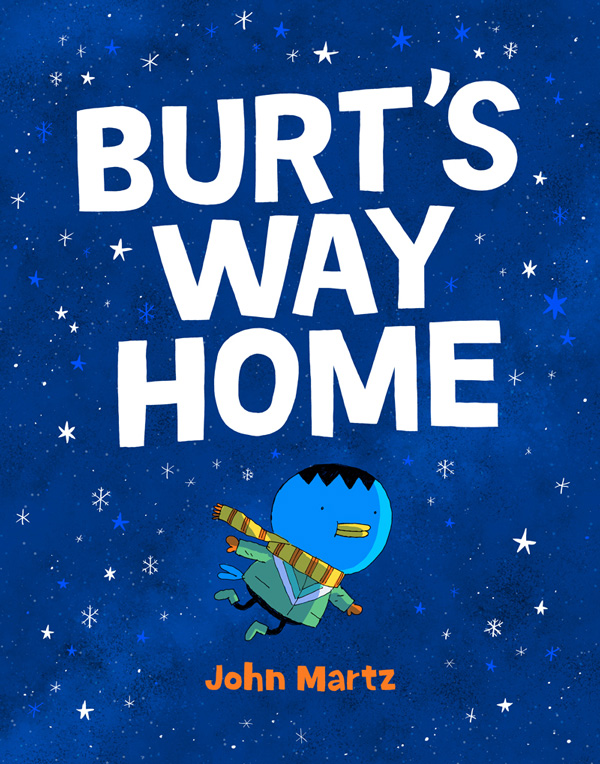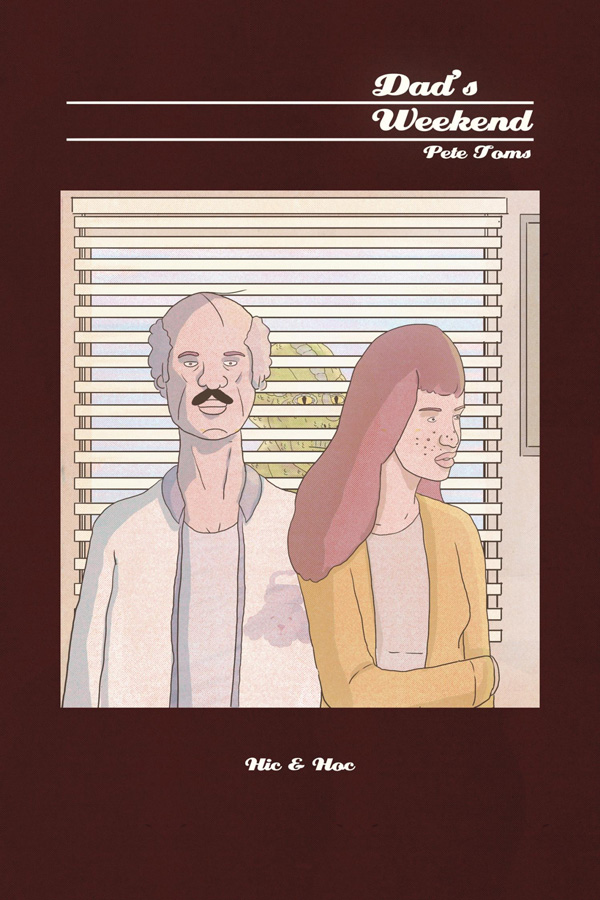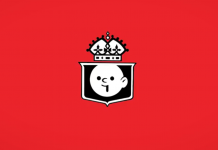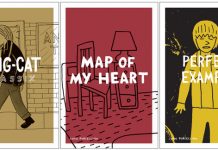This incredibly sweet story is aimed at kids, but its emotional depth will satisfy many adults. Burt lives with Lydia in a nondescript apartment at the bottom of a hill, though the reasons for this are unexplained. It’s made obvious that Lydia is not Burt’s parent, but a guardian, and that they don’t know each other too well. The narrative splits between Lydia’s take on the situation and Burt’s. Lydia’s are short sentences that exhibit concern and hint at what might have brought Burt to her. Burt’s are more expansive monologues that rave enthusiastically about cross-dimensional adventures with his parents, and the so-called truth of the situation, that he is a traveler from another dimension trapped on Earth in Lydia’s home. Nestled between the complex backstory that Burt portrays and the dark emotions that Lydia hints at is a very simple, very gentle story about acceptance and hope that unfolds as we see the efforts of both Lydia and Burt to come to terms with the situation they find themselves in. Martz’s artwork is at its most simple here, and yet does wonders in not only world-building but portraying the emotions behind the pictures.
A lot of people complain their parents are a nightmare, but Whitney’s case in this area is particularly compelling. She’s going to spend the weekend with her dad who, as she explains it, belongs to “one of those ridic, masonic, old man clubs” called the Ancient Order of the Poodle. Actually, it turns out he was kicked out of his original secret society and formed the Poodle group in order to create an organization that delved more into the political and metaphysical nature of reality. There might be one other guy in the Poodle group with him. Dad obviously had a nervous breakdown of some sort. That infects the weekend together, and his preoccupation with the perceived disappearance of his friend Jimmy — the other guy in the Poodle group — hijacks any sort of normalcy the two are going to have together and send them on a road trip that’s going to reveal to Whitney exactly what she already knows about her father. Toms does a great job of taking us all down the rabbit hole in an examination of the kind of obsessive, paranoid Alex Jones mentality that is too prevalent these days, and also managing to tie it into familial alienation quite well. Whitney’s unabashed reaction to her father masks something deeper, though also speaks to her compassion. The only thing wrong with this is the length. You want there to be more, but that also speaks to what Toms lays out and the way that he does it — it’s engaging, but it also hints at layers underneath the train wreck that you’re finding amusing.
Mini Kus #48: Nul by Olive Booger
In which we learn the extremes that some people will go to for love — or, rather, for desperate want of it. The unnamed protagonist is fixated on Jozy-Ann, who has taken steps to avoid him at all costs. But when he gets word of a job she has moved away for, he decides to follow her and do the same in order to be near her. What ensues is not what he expected — a literally hellish reeducation camp experience that strips down the individual for the purpose building them back up for sinister purposes. And even with this experience, Jozy-Ann remain elusive. Booger tells the story in a diary format, which puts the narrative at least one place removed from a reality it already seems to not inhabit, allowing for peculiar details and agitated tangents of the narrator’s trying experience. Booger’s art is a kind of scratchy cartooning that captures the chaos and unreality of the situation, expressing a descent into madness as well as dystopia, and making the grotesque amusing.










